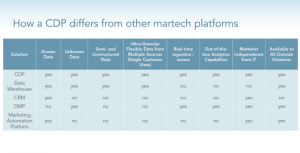A financial guide to navigating your sandwich generation years
Feeling squeezed between the pressures of caring for aging parents and raising school-age kids? If this describes you, the specific financial advice here can help you and the two generations relying on you.
Sometimes, it feels like everyone needs you all at the same time. Your elderly parents are not so steady anymore and need you to shovel their snow and figure out how to pay for their expensive heart medication. But your kids are at a tough age, too, and need another $2,000 worth of orthodontia and a shoulder to cry on when what’s-his-face sends a breakup text. This is what it’s like in the sandwich generation—the generation of folks who are caring for kids at home while also helping aging parents navigate late retirement.
When you’re in the midst of this balancing act, it can feel like no picnic. But this hectic season of your life does not have to ruin your finances, or your plans. Here’s how members of the sandwich generation can financially protect themselves while being there for their parents and kids.
Have the unpleasant conversations
Many people would rather clean the local football stadium with a toothbrush than talk to their parents about money, healthcare, and estate planning, but those in the sandwich generation simply can’t avoid these conversations.
You need to understand exactly where your parents stand financially. Do they have a robust nest egg or are they living on a shoestring? Do they have a plan for long-term care? Do they have a will, power of attorney, advance directive, or other plans in place if they become incapacitated or die?
If just thinking about bringing up these issues feels like throwing a conversational grenade, try couching the chat as a request for advice. You might ask Mom and Dad how they planned for retirement since you’re thinking about your own nest egg. Similarly, you could suggest that you work on these important plans and documents together so that you get your estate-planning taken care of alongside your parents.
Prioritize your retirement
The advice to prioritize your retirement-investing ahead of college savings is relatively easy to follow. Not only does maximizing your tax-advantaged retirement savings while your kids are still in high school help them qualify for financial aid, but you also know that your children can take loans for school, whereas there are no loans available for your retirement.
It gets hairier when you have to choose between retirement-investing and taking care of your aging parents. If they’re in need of long-term care and do not have the funds for it, focusing your financial resources on your eventual retirement can feel like a heartless choice. Nevertheless, it is important to continue investing for retirement, even if your parents need financial help.
That’s because forgoing retirement contributions in your forties and fifties means missing out on important years of compounding growth, which can kick the can of financial insolvency down to the next generation. If you bankroll your parents’ care now, it’s likely your kids will have to do the same for you, continuing the cycle.
Additionally, paying for your parents’ care puts off their eligibility for Medicaid, which only kicks in for long-term-care recipients after they’ve exhausted their own assets. Asking your parents to rely on their own resources while you help them with the logistical side of qualifying for aid and caretaking is the best way to protect yourself and your kids.
Familiarize yourself with Social Security and Medicare
One concrete and nonfinancial way to help your elderly parents is by reading up on Social Security and Medicare. The time you spend learning about these benefits programs can help you guide your parents through a number of important decisions—and the information could also eventually help you navigate these programs. This can help your parents avoid leaving money on the table or making decisions based on inaccurate information.

A good place to start is the eligibility questionnaires at benefits.gov, which can help you and your parents determine if they qualify for any federal program benefits. Another helpful website is the my Social Security account, which gives personalized estimates of future benefits.
Keep your insurance up-to-date
Both life insurance and disability insurance are must-haves for all parents, but this is doubly true for those in the sandwich generation. With two generations relying on you, a potential loss of your income could be especially devastating. That’s why disability insurance can be a lifesaver if you were to get laid off or have a health scare making you unable to work for a short time. Having adequate life insurance to take care of your kids and your parents is equally important. It’s also a good reminder to look into what life insurance policies your parents have.
Parents to the left of me, kids to the right, here I am . . .
Stuck in the middle of two generations with big needs can have you under a lot of pressure. But there are a few solid ways to relieve the pressure without hurting your finances or relationships.
Put boundaries around your finances by prioritizing your own retirement and having open discussions with your parents about their money situation. Offer to help them navigate Social Security and Medicare so they get all the benefits they’re eligible to receive. And protect your income with life insurance and disability insurance.
With these strategies in place, you can free up some headspace to appreciate the unique joys of being in the middle.
ABOUT THE AUTHOR
(9)
Report Post







